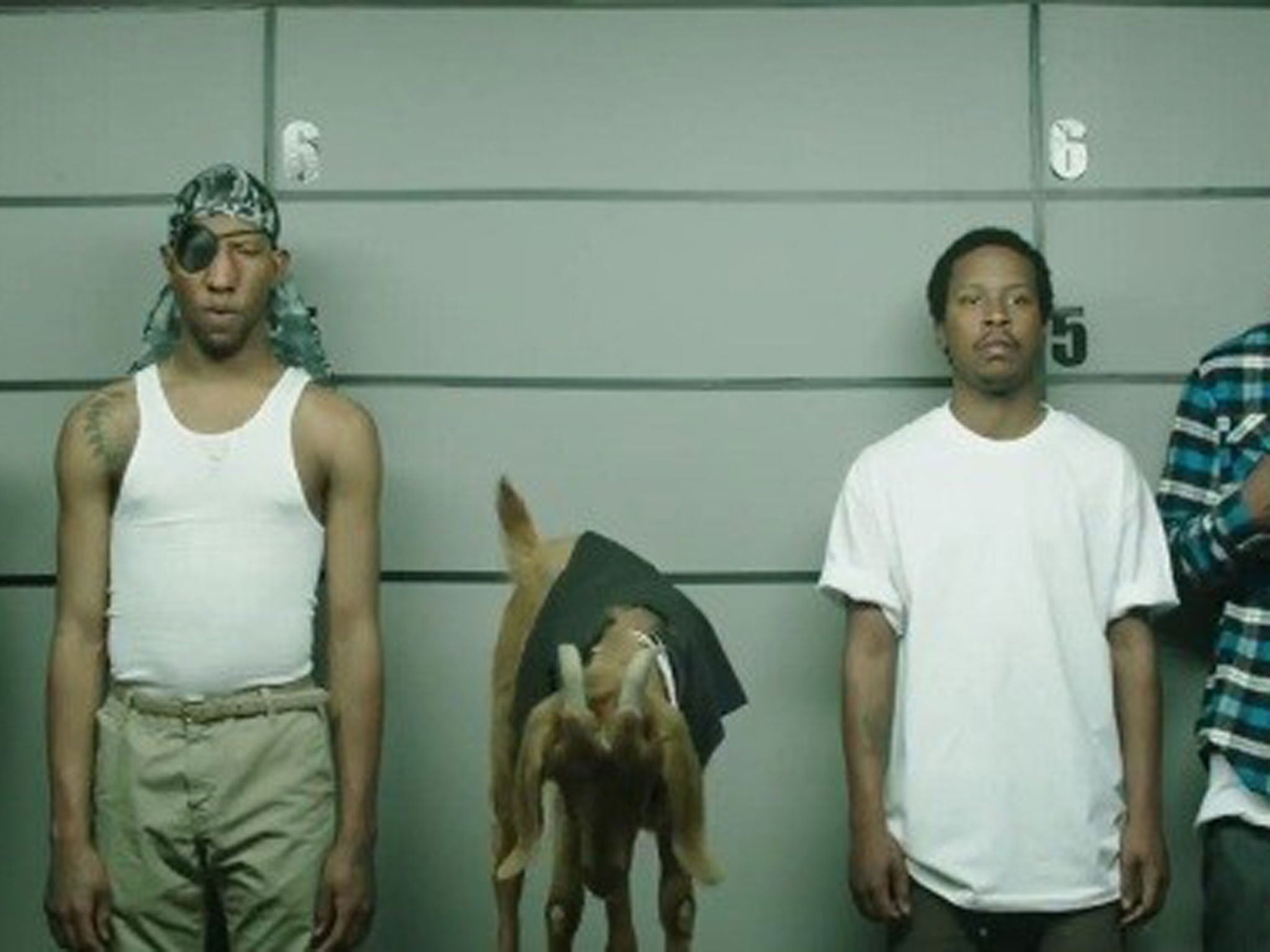The most racist ad in history? Maybe - but for PepsiCo and Mountain Dew, it's priceless
It's far better for an ad to be loathed than sink without a trace

Yesterday, an identity parade featuring five silent black men and a telepathic goat toured the world, vilified as ‘the most racist ad ever’. Blog after blog, news station after news station succumbed to its power. It didn’t matter that the dialogue was confused, the acting ham, the product a mere afterthought and the resolution banal. What mattered was that ‘The Most Racist Ad Ever’ was on procession - all hail!
Meanwhile, back at Pepsico head office, after making the appropriate noises of penitence, perhaps the Mountain Dew marketing team were popping open the bubbly. They have achieved the Holy Grail of advertising - a viral video for mere pennies, when over the last ten years, they have spent over $200m on Super Bowl advertising alone.
It’s not the first time that we see a giant corporation trying its hand at controversy. Big brands are slowly but surely coming round to the concept of Earned Media - stunts which set chins wagging- above the more traditional realm of Bought Media, which for various reasons no longer has the clout it once had. In our highly interconnected age, a single idea can be endowed with a penetrative power unimagined only twenty years ago.
Go hard
A viral video is something which every client asks for, and very few get. Firstly, there is no exact science for creating one, and the public can very often see through brands’ attempts to make them. Secondly, clients as a rule are afraid to rock the boat. Controversy doesn’t come in half-measures; it’s go hard or go home, a bitter pill which clients find hard to swallow, and the reason why many attempts end up half-baked.
Every day, creatives must tread a careful path between banality and unacceptability, all too often falling on the side of the former, for the simple reason that unacceptable ads rarely leave the Creative Director’s office. So if nothing else, this ad shows that whoever was behind it knows how to handle clients, or that the clients actually had some guts.
Let’s remember, too, that 10 times out of 10 controversy is better than its counterpoint - banality. It would be a sick man indeed who would choose mind-numbing boredom above a frivolous bit of anger. Tasteless, formless, and badly scripted as the Pepsico advert is, it’s far more memorable than the majority of Pepsi adverts - most of which seem to have been made by a claw crane that randomly scoops out celebrities, before dropping them in scenes as artificial and sugary sweet as the drink they are trying to sell. Our attention has never been harder to attract. These days, 89 per cent of advertising goes ignored. Of the remainder, seven percent is recalled, and hated. You have more chance of being struck by lightning while crashing your car, than you do of intentionally clicking an online banner. Given these statistics, it’s hard to blame companies for trying such shock tactics.
Superlative
Controversy is no new thing. It has been used to sell ever since the dawn of advertising itself. One example dates back to 18 century France, where King Louis XVI, in a bid to get more peasants to grow potatoes, decreed that the vegetable was "for Royals only", and forbade commoners to eat them. Needless to say, within a year they were everywhere. More recently, people have said that Trevor Beattie, mastermind behind the Wonderbra ‘Hello Boys’ commercial, purposefully crashed next to a billboard to make a news story. Advertising has been described as "Climbing to the top of the highest tree, and shouting louder than everyone else." Note "louder", not "more beautifully".
In fact, this is a point worth considering. Earned Media is concerned less about the content of an advert than the way that news stations and blogs can carry the story. This Mountain Dew Goat commercial was an awful ad, but a wonderful headline. Increasingly, superlatives rule. ‘World’s First’ ‘World’s Biggest’, ‘Most Angry’, ‘Most Stupid’ attract attention far better than ‘Very Witty’, or ‘Very Elegant’.
If it can’t be put as an attention-grabbing story, which raises issues outside of selling a product, then a broadcasting company won’t run it. This is a law that may continue to change the way adverts are made in the future. Equally, steps may be made by the media to simply ignore all advertising, no matter how stimulating a story it may be, (or how beguiling the agencies’ marketing managers’ tip offs). In any case, at the risk of damaging the trade, to those who are particularly outraged by controversial advertising, I would say, keep your mouth shut about it. It’s exactly what brands don’t want you to do.

Join our commenting forum
Join thought-provoking conversations, follow other Independent readers and see their replies
Comments